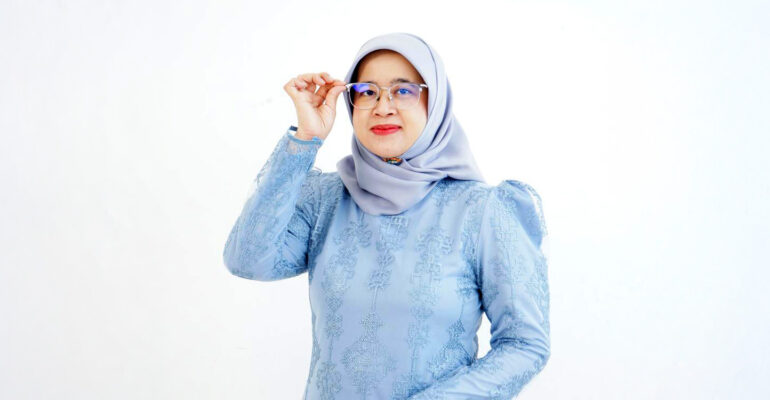Inspiring, Getting to Know Prof Asadatun Abdullah, the Youngest Female Professor at IPB University

International Women’s Day every March 8 is a moment of reflection for women in Indonesia to continue to contribute in various fields. In a dynamic world, women are increasingly showing their role as innovators and influential figures.
This was also inspired by Prof Asadatun Abdullah, the youngest female professor currently at IPB University. For her, International Women’s Day is a moment to celebrate the progress, contributions and potential of women in various fields, including academia, science and innovation.
“As a woman who is active in research and scientific publications, I see this day as a reminder that women have an important role in advancing science and technology,” she said.
Prof Asadatun officially holds the Permanent Professor of the Faculty of Fisheries and Marine Sciences (FPIK) since September 1, 2024 at the age of 41 years and 4 months. Last February, she also delivered a scientific oration entitled “Application of Genomic Techniques to Ensure the Quality and Safety of Indonesian Fishery Products Industry Materials”.
As a female researcher who is active in the field of biomolecular and characterization of fishery product materials, Prof Asadatun has dedicated her career to research oriented towards solving various problems in industry and society.
As a productive academic, Prof Asadatun has published 49 articles in Scopus-indexed international journals, 39 articles in Sinta-accredited national journals, and 18 Scopus-indexed proceedings.
Her publications have been cited 294 times in Scopus and 1.121 times in Google Scholar, with an overall SINTA score of 3.480 and H-index of 9 in Scopus.
“I have also produced five active patents and more than 10 patents in process, including in the field of genomic engineering which is the focus of my research,” she said.
Her research focuses on the application of genomic and physicochemical techniques to ensure the quality and safety of high-value fishery commodities such as tuna, skipjack, tuna, eel, shrimp, crab, shark, ray, and seaweed.
“We develop molecular tools and smart detection kits that can help industry and government in ensuring the quality of fishery products. This innovation is in line with the concept of academic, business, government, and community (ABCG) synergy,” she said.
With the various works she has carved out, she hopes to inspire young female academics to believe that they too can achieve great things.
“International Women’s Day also reminds us of the importance of equality and support for women to thrive. This moment is the perfect time to reflect on how we can create more equitable and inclusive opportunities for all women,” she said.
Through my work, whether in research, book writing, or developing appropriate products, I am committed to continuing to contribute and be an example that women can excel in the fields of science and technology.
Behind her achievements, Prof Asadatun said she was inspired by two great figures in her life. The first is Prof Herry Suhardiyanto, Rector of IPB University for the period 2007-2012 and 2012-2017.
“My uncle (Prof Herry) always gave a direct example of how to be a lecturer and researcher who is consistent in any condition. His dedication in conducting research, while still serving for the development of the institution, became a role model for me,” she said.
Another figure who inspires him is Dr. Angela Merkel, Chancellor of Germany for the 2005-2021 period, one of the most influential female figures in the world. “As a visionary leader, she is a symbol of strength, resilience and intelligence that inspires many women, including me,” she said.
To the younger generation who will choose a career as an educator, Prof Asadatun advised on the importance of consistency and passion. “For students who want to continue their career in academia, I would like to say that consistency and passion are the main keys.”
For her, being an academic is not just about pursuing degrees or publications, but also about dedication to continue learning, contributing to science, and serving the community.
“Don’t be afraid to take risks in exploring innovative research topics, because therein often lies the opportunity to make breakthroughs. Students must have the mindset ‘innovate to thrive, or risk being overtaken by those who do’.
“Make challenges an opportunity to think creatively, and never stop learning. Remember, innovation is not a one-time effort but a continuous journey,” she concluded. (dr) (IAAS/LAN)



